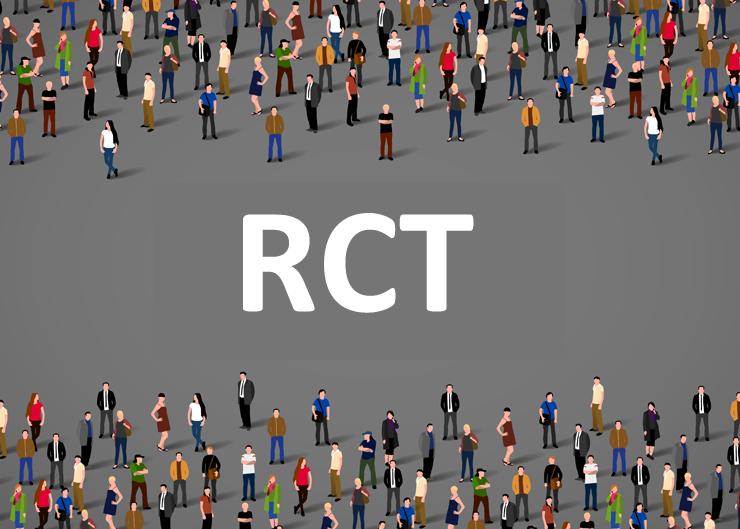Program
- Professor Ian Whitmarsh: “Race, Disease, and the Perverse Authority of the Real: the Law under the Carnivalesque.”
- PhD(c) Ryan Whitacre: “Intimate Innovation"
Registration
The guest lecture will be of interests to scholars and people working on guideline making and implementation within public health, people who are interested in the usage of RCTs, and individuals that are working on how truth is constituted within medicine.
There is no participant fee, but please register so we know how many will attend.
RCT
RCTs have in recent years become the gold standard in evidence-based medicine in terms of establishing a given intervention and its efficacy. In particular, this gold standard has become more and more linked to how medical guidelines are shaped and used in clinical settings as well as in policy. RCTs as research design is not so much the object of inquiry in this workshop, rather we want to engage with how knowledge is used, translated, and moved from the RCTs to guidelines and to policies. Furthermore, we want to engage with concepts such as truth making, evidence and interpretation within a medical setting.
Professor Ian Whitmarsh
Professor Ian Whitmarsh is Professor of Medical Anthropology and Director of the Medical Anthropology Ph.D. Program. His research explores tensions in structural, religious, and psychoanalytic logics in new forms of care. Over the past decade he has carried out research in the Caribbean on the transnational science of genomic research on the African diaspora; asthma as a modern condition in its ambiguity; and pleasures and dangers construed around diabetes and violence. These projects focus on biomedical links made between desire and suffering and the ethics and aesthetics of being healthy.
Professor Whitmars’ talk will explore race, disease, and “the real” as a political, experiential, and psychoanalytic concept:
I will draw on psychoanalytic analyses of the law to rethink recent attempts to ground science studies in the real or materiality. My hope is that the conversation will be more experimental, thinking through some possibilities (engaging Latour and Lacan) rather than a structured reading of a paper. I will try to sound out an argument that the Caribbean carnivalesque can be used to analyze authority in relation to this real in a way that questions biomedical versions of the connection between race and disease.
Ryan Whitacre
Ryan Whitacre, PhD(c) talk will be on HIV and innovations in HIV treatment and prevention. His research includes working through a school of thought in medical anthropology, which bridges political economic critique, discursive analysis, and moral philosophy to comprehend the human subject within the conditions of contemporary life, especially in relation to health and care. His research examines the intimacy of the human subject, and explores how the intimate subject fits within political, economic, and moral institutions. In particular, he examines the relationship between the ‘intimate subject’ and systems of ‘innovation’ in drug markets, including pharmaceutical research and development, corporate mergers and acquisitions, and property regimes.
The title of the paper is named “Intimate Innovation” and concerns the implementation and use of Truvada for PrEP. In this he talk argues that the implementation and use of Truvada for PrEP enlivens concerns about the cost of medicine, scientific knowledge, especially the results of clinical trials, as well as the meaning of ‘safe’ or ‘risky’ sex.
By exploring how the use of Truvada for PrEP is conceived in relation to cost, science, and sex, this talk continues inquiry about how processes of translation affect pharmaceutical prescription and consumption. Extending this line of inquiry, Whitacre argues that consuming Truvada for PrEP involves interpretation on at least two levels. The first level of interpretation centers on conditions of truth. Seeking truth, patients, providers and researchers reveal and conceal opposing facts about Truvada, including its accessibility, safety and efficacy. The second level of interpretation concerns appropriate use, opening debates about how Truvada for PrEP affects sexual behavior and incidence rates for HIV as well as other STIs. This second interpretation, Whitacre argues, is rooted in a long history of moral reflection about the appropriate use of pleasure, and in particular, how much one should partake in activities that bring pleasure, such as sex.
In the interplay between interpretations that are revealed and concealed, as some people choose to consume PrEP while others decide not to, this talk shows how we may better understand pharmaceutical prescription and consumption through processes of interpretations that are rooted in a larger set of considerations about the conditions of truth and appropriate use.
